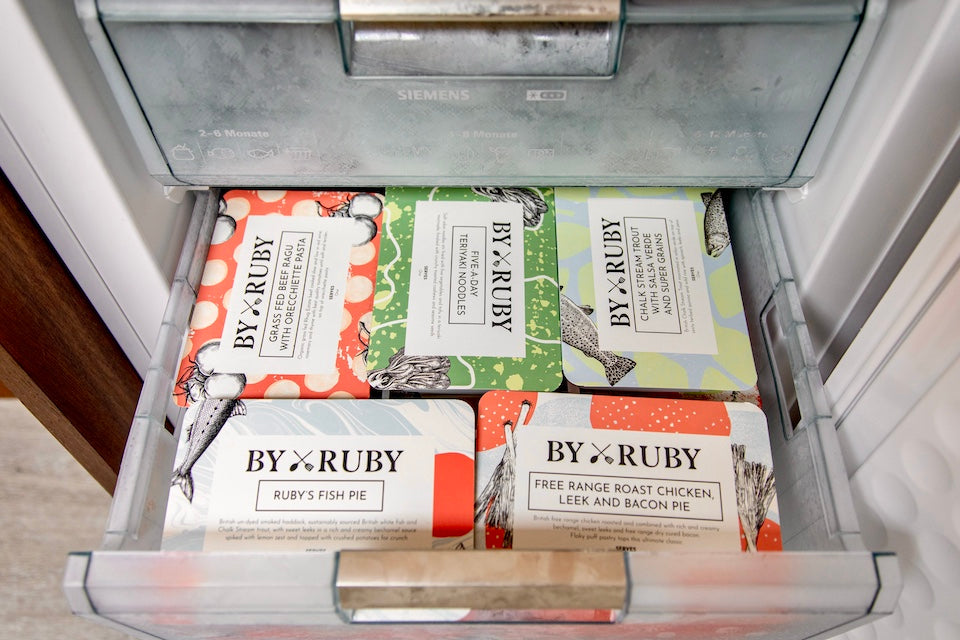A Fresh Approach to Frozen: Why frozen food is the future
For much too long now, frozen food has, unfairly, had a bit of a bad rep. This idea seems completely ancient to us, based probably on perceptions from back in the day when we used to feed our kids Sunny D to get their daily vitamin dose.
Having said this, it is surprising how few people are aware of the incredible potential and power that this little arctic spot of your kitchen holds. That’s why we wanted to shed a little light on this topic, and give a well-deserved shout out to frozen foods. When done right it can be a total game-changer.
Pairing it down to the simplest of examples, we present to you one frozen food that seems to have eluded the frozen stigma - peas. Picking up a bag of frozen peas in the supermarket will be second nature to most of us. The beauty and appeal of the product is the ability to have a consistent supply of green veg at hand that we never have to worry about escaping our attention for a few days, and turning bad before we’ve had a chance to use it. The fact that they can be cooked in minutes straight from frozen is also obviously an absolute winner when, more often than not, we need a fall back in a moment’s notice.
So why frozen peas? Or better yet, why frozen? Convenience is obviously part of the equation, but equally important are reduction in food waste and, off the back of this, increasing the longevity of a food’s freshness.
Freezing is a completely natural preservation technique. It is the ideal way to press pause on a food’s shelf life without having to use any chemicals or artificial ingredients. In a world struggling with global warming and climate change, it is shocking to find out that globally we waste ⅓ of all food produced, and in the UK alone 6.7 million tonnes per year, representing costs of £250-£400 per household per year. Freezing therefore not only keeps things fresher for longer, but in the long run it also is likely to save you a fair bit of cash.
While frozen peas are old news to most, for pretty much all our other ingredients we tend to head straight to the ‘fresh’ aisles. It is ironic to hear, therefore, that the fruit and veg marketed as fresh in supermarkets have in fact often been sitting around for weeks, especially when you take into account the time they would have spent in packaging and delivery (particularly those coming from across the globe).
Where fresh foods like these lose vitamins and minerals every day until consumed, the moment freezing is involved nutrients are preserved. That’s why sourcing both locally and frequently is an added means of ensuring maximum freshness, and is something we personally take pride in. To go one step further, here at ByRuby we cook and freeze our meals on the same day, locking in all the goodness as soon as possible. It is the combination of all these factors which prove that when we call our meals seriously seriously special we really mean it. And the best thing? No time-pressure to consume before rather funny smells start emanating from your fridge...
In the wider picture, when it comes down to a choice between health or convenience, it’s no surprise that convenience nearly always comes out on top. But what we love about frozen food, and what we ensure about our meals in particular, is that you don’t have to choose. As all frozen food should be, our meals never have any additives or preservatives, and the convenience factor speaks for itself - who wouldn’t want access to a stack of home-made, or better yet, chef-made, meals from the comfort of their own home? Convenience without compromise.
In summary of our true frozen crusade, we really believe that with just a little insider knowledge, frozen foods can not only be seriously special and delicious, but can also save time and money, be healthy and convenient, and, ever importantly, be great for the environment.
What’s not to love?
Stay tuned for top tips on how to best utilise your freezer, including foods you never knew you could freeze, foods to avoid freezing, and some handy ways to incorporate freezing into your future cooking and baking.
Written by Lucy Grubb

